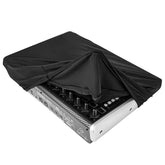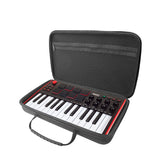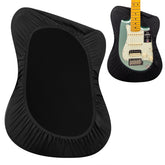Tips for Mastering Guitar Finger Technique: Advice from a Professional Musician
Mastering guitar finger technique is essential for becoming a proficient guitarist. Here are some practice methods and tips recommended by professional musicians to help you improve your guitar finger technique.
1. Basic Practice
- Finger Exercises: Spend 15 minutes every day practicing basic finger exercises, such as transitioning between chords like C, G, D, and A. These exercises can enhance finger flexibility and strength.
- Scale Practice: Familiarize yourself with basic guitar scales, such as the C major scale. Daily scale practice helps you understand the fretboard and improve finger coordination.
2. Use a Metronome
Practicing with a metronome is a great way to improve your sense of rhythm and accuracy. Start at a slow pace and gradually increase the speed, ensuring that each note is played correctly.
3. Practice Slowly
Slow practice is an effective method for mastering complex fingerings. Break down difficult passages into small sections and practice them slowly until you can play each note smoothly, then gradually increase the speed.
4. Keep Your Hands Relaxed
While practicing, make sure to keep your hands relaxed. Tension in your fingers can hinder your playing flexibility and accuracy. Stretching and relaxation exercises can help relieve hand tension.
5. Diversify Your Practice
Try playing different styles of music, such as classical, jazz, and rock. Different styles can help you improve various finger techniques comprehensively. Additionally, diverse practice keeps your sessions fresh and interesting.
6. Record Yourself
Recording your practice sessions allows you to objectively evaluate your progress and identify areas for improvement. Listening to your recordings can reveal issues you might not notice during practice, enabling more targeted improvements.
7. Seek Guidance
Taking guitar lessons or seeking advice from a professional teacher can provide you with personalized guidance and recommendations. A teacher can help you correct improper finger techniques and improve your practice efficiency.







